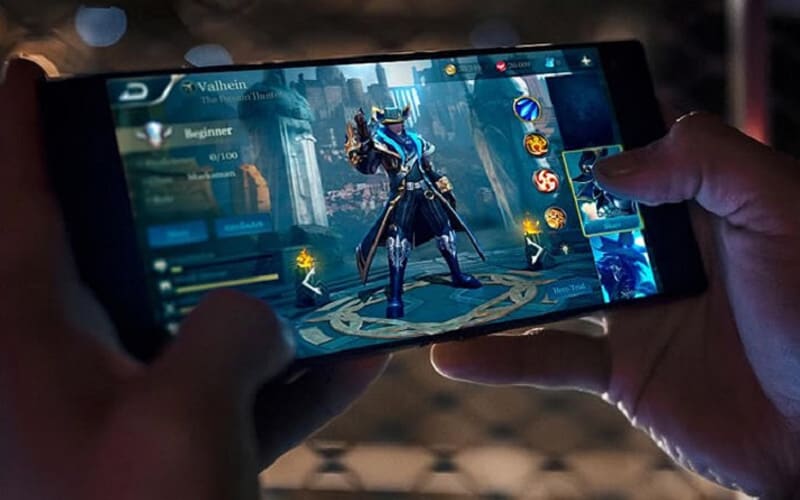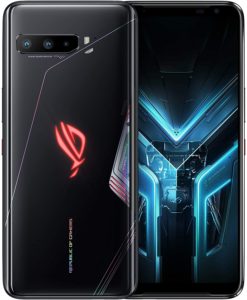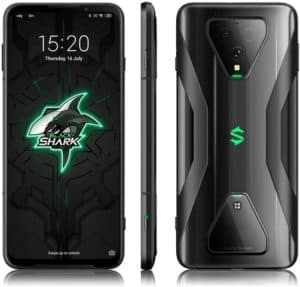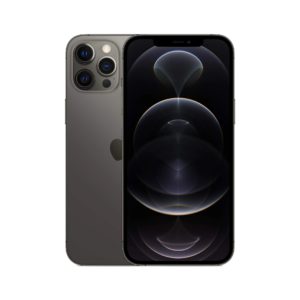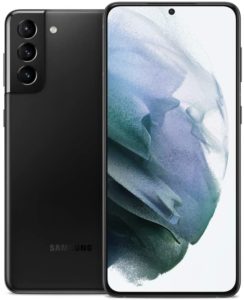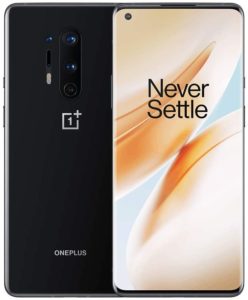Products at a Glance
How we picked
While mobile gaming has been around for some time now, the advent of dedicated gaming phones is relatively recent, and more manufacturers are churning out such devices. At the same time, products from mobile mainstays like Apple and Samsung, while not explicitly targeted at gaming, are more than fit for purpose thanks to beefy specs and, in Apple’s case, its own gaming ecosystem.
With that in mind, we didn’t simply gravitate towards phones marketed for gaming but cast our net to a broader range of mobile phones. Factors such as price, screen size, refresh rate, battery life, hardware, and, of course, gaming performance largely dictated which products stood out for us.
We ultimately settled on five phones fit for gaming, covering various manufacturers, budgets, and operating systems. We’ve covered a few bases, highlighting options that should resonate with most people interested in gaming phones. Let’s dive in.
If this guide isn’t for you, we’ve plenty more to check out.
Product Reviews
- Made specifically for gaming
- Top specs
- Gaming performance
- Battery life
- Lacks everyday use features
- High price
When a reputable PC hardware giant produces a gaming-focused phone, you know they mean business. Asus has done just that, leveraging their expertise to deliver one of the best phones made for mobile gaming around – the Asus ROG Phone 3.
Designed from the ground up specifically for gaming, the Asus ROG Phone 3 is the phone of choice for those serious about playing the most demanding title on the go. Buttery smooth frame rates, stellar graphics, and plenty of battery life – the ROG Phone 3 delivers unhindered performance where it matters.
The Asus ROG Phone 3 boasts a 6.59″ 144 Hz AMOLED display, Qualcomm Snapdragon 865 Plus chipset, an overclocked Adreno 650 GPU, 512 GB of storage, 16 GB of LPDDR5 RAM, 3D vapor chamber, chunky heatsink, and a monstrous 6,000mAh battery.
Bundled together, these translate to excellent battery life even under sustained use and responsive, peak gaming performance with high contrast and vibrant colors thanks to variable refresh rates up to 144 Hz, HDR10+, resolutions up to 2340×1080, 270 Hz touch-sampling rate, and 5G support. There’s very little else you could throw at the Asus ROG Phone 3 in terms of raw hardware to make it any better.
As a device that first and foremost targets gaming, the Asus ROG Phone 3 does lack certain everyday use features such as wireless charging or meaningful waterproofing. Similarly, the camera quality borders on the mediocre and falls short compared to photographic mobile powerhouses like the iPhone family. Considering the hefty price tag, the Asus ROG Phone 3 won’t suit the average phone user and only comes into its own when used primarily for everyday gaming.
- Top specifications
- Excellent gaming performance
- Affordable price
- Liquid cooling
- Only 90 Hz refresh rate
- Divise design
- Non-gaming features aren’t the best
While the Asus ROG Phone 3 is our top pick, the Black Shark 3 Gaming Phone is a worthy alternative equally geared towards mobile gaming. Costing less, the Black Shark 3 Gaming Phone has all the features and specifications you’d expect from a high-end gaming phone.
Under the hood, the device packs a generous 6.67″ inch AMOLED display with a resolution of 2400×1080, Qualcomm Snapdragon 865 CPU, Adreno 650 GPU, 12 GB of LPDDR5 RAM, 270 Hz touch-reporting rate, 5G and WiFi 6 support, and 256 GB of SSD storage.
The lower price does come with some compromises, chiefly in the 90 Hz refresh rate and 4720mAh battery, but these are still top-tier specs by any standard. The battery packs enough juice to power roughly five hours of a demanding game at 90 Hz with the settings maxed out. With the dual battery system’s 65 W lightning-fast hyper charging tech, the Black Shark 3 can reach a full charge in a breezy 40 minutes or so.
The Black Shark 3 Gaming Phone sets itself apart by integrating a ‘Sandwich’ liquid cooling system, which sets the phone’s core components between two long cooling pipes to improve cooling efficiency by 50%.
Much like the Asus ROG Phone 3, the Black Shark 3 Gaming Phone skimps on everyday use features, mainly the camera isn’t the best out there, and no wireless charging nor waterproofing. Similarly, the overly ‘gamer’ aesthetic may not be to everyone’s taste, especially those accustomed to Apple and Samsung’s sleeker looks.
- Access to rich library of iOS games and Apple Arcade
- Gaming performance
- Stunning OLED display
- Top-tier everyday use features
- Price premium
- 60 Hz refresh rate
- Small storage as standard
For better or worse, the iOS ecosystem, for all its excellent features and desirable content, remains constrained by the need for an Apple device. Whether it’s taking advantage of the impressive library of Apple Arcade games and exclusives or simple brand loyalty, there’s plenty of reasons to game on an iPhone, and the beastly Apple iPhone 12 Pro Max is our top pick from Apple’s current mobile line-up.
As Apple’s flagship mobile, the Apple iPhone 12 Pro Max represents the best of both worlds option with gaming chops that rival those of the ROG Phone 3 and Apple’s renowned everyday use – apps, smooth UI, excellent battery life, and unmatched camera quality.
On the gaming front, Apple’s A14 Bionic chipset does most of the heavy lifting, surpassing the Snapdragon family in raw power, so much so that the Apple iPhone 12 Pro Max’s 6 GB of RAM more than suffice to power the most demanding iOS games. The phone also ships with one of the best screens around – 6.7″ OLED display with a 2778×1284 – and produces hands down the best mobile visuals currently available.
Despite high-end gaming credentials, the Apple iPhone 12 Pro Max only ships with a 128 GB SSD as standard (although Apple will happily throw in up to 512 GB for more coin), and the refresh rate sits at 60 Hz. As with most Apple products, the Apple iPhone 12 Pro Max doesn’t come cheap and sits alongside the most expensive gaming-ready phones in our guide.
- 120 Hz refresh rate
- Well-tuned Android ecosystem
- Snapdragon 888 chip
- Price
- Small Storage
If you need an Android phone that isn’t solely focused on gaming but offers enough in that department to deliver an outstanding gaming experience alongside a wealth of well-rounded, typical phone features, then the Samsung Galaxy S21 Plus is a worthwhile option.
On the specification front, the Samsung Galaxy S21 Plus sports a generously-sized 6.7″ 2400×1080 AMOLED display, a powerful Snapdragon 888 chip, 8 GB of RAM, 128/256 GB SSD, 5G support, and a 4800mAh battery. Not the best out there, but certainly up there, and enough to deliver a top-tier gaming experience.
The Samsung Galaxy S21 Plus’s crisp display also pushes a variable refresh rate that caps out at 120 Hz – double that of the iPhone above – alongside HDR10+ support for vibrant colors and sharp visuals. This naturally translates well to gaming, and the phone can handle any Android title under the sun, from casual to the most demanding games. However, the 120 Hz refresh does involve a trade-off when it comes to resolution, lowering it to FHD+.
Samsung’s dominance in the Android space carries over to the Samsung Galaxy S21 Plus. It will breeze through typical everyday use with ease, including a triplet of fantastic cameras, making it a perfect dual utility phone.
Much like the iPhone 12 Pro Max, the storage space is limited on the base model compared to alternatives specifically targeting gaming, and you do pay for the Samsung name. Similarly, the battery won’t pack as much juice as the ASUS or Black Shark gaming phones but is sufficient if balanced with regular charging.
- Lower price than other premium phones
- 120 Hz refresh ever at high resolutions
- Great display
- Slightly outdone by Apple and Samsung for everyday use
The price of Apple, Samsung, and dedicated gaming phones are all-too-often out of reach for many – indeed, paying over $1000 for a phone is an expense that’s difficult to justify. Fortunately, the OnePlus 8 Pro swoops in to save the day with impressive, premium specs at a more palatable price.
Make no mistake; the OnePlus 8 Pro is through and through a high-end Android device that delivers top-tier gaming alongside performing admirably in your usual array of everyday tasks. The 6.78″ AMOLED display takes center stage, bringing games to life with a 120 Hz refresh rate at full 3168×1440 resolution and a crisp, bright, and smooth bezel-less experience.
Powering all this is a Snapdragon 865 chip, 12 GB of RAM, 256 GB SSD, 5G support, and a long-lasting 4510mAh battery. The storage space could be larger, but with a lower price, it’s a slight compromise worth making.
Not a dedicated gaming phone by design, the OnePlus 8 Pro doubles as an impressive everyday phone, flirting with Apple and Samsung’s speed and functionality, thanks to quality cameras, wireless charging, waterproofing, and a more mainstream, slick aesthetic. It falls a little short compared to the big two in some areas but is significantly better than what you’d find in a dedicated gaming phone.
The OnePlus 8 Pro isn’t cheap but is less expensive than similarly specced Apple and Samsung rivals and has just as much gaming potential under the hood. For sheer value in the premium space, the OnePlus 8 Pro is an excellent, well-rounded option for mobile gaming.
Things to consider
Display Size and Refresh Rate
A decent gaming phone should have above 60 Hz refresh rate. 90 Hz is reasonably standard, and we’re increasingly seeing phone manufacturers push up to 120 Hz and, as in the case of the market-leading Asus ROG Phone 3, an ultra-smooth 144 Hz. While we recommend at least a 90 Hz refresh rate for the best gaming experience, some phones with lower refresh rates, such as the Apple iPhone 12 Pro Max, excel in other areas softening the blow somewhat.
We suggest opting for a large display, as it will significantly improve the experience. Nothing detracts from the enjoyment of mobile gaming like having to strain the eyes to decipher what’s happening on-screen. Phone screens are small as it is, so even a small jump compared to a standard smartphone can make a huge difference.
Everyday Use and Gaming
While mobile gaming is more popular than ever, it exists in tandem with the usual functionality of a smartphone – apps, phone calls, email, web browsing, and so on. Chances are you can’t justify forking out a grand just to play games, and, more often than not, it will primarily act as a typical phone.
To that end, it’s worth weighing up the typical performance of a phone to how it fares when running games to find a balance between the two. Samsung and Apple are naturally good choices in this regard, but dedicated gaming phones perform respectably, although don’t expect the same functionality nor identical phone-centric features.
Android vs. iOS
Both mobile operating systems have a lot going for them these days when it comes to gaming. Whether that’s the ever-growing Apple Arcade or the wide-spread availability of Android games, there’s no clear answer to which is best, other than more intangible factors such as personal preference and platform loyalty.
In terms of devices, iOS does limit the pool of potential options to Apple products along with the price premium synonymous with that fruit-shaped logo. Android, on the other, grants far more options, albeit in a less fine-tuned ecosystem.
Fortunately, developers are increasingly porting games to both operating systems, further blurring the line between them. However, Apple is borrowing a book from Epic Games’ playbook and going down the stacked roster of exclusives route to tempt users over.
Our Verdict
Oozing with raw power, buttery-smooth performance, and exceptional battery life, our go-to gaming phone has to be the Asus ROG Phone 3. As the best dedicated gaming phone currently available, this is one for the serious gamer, with a price tag to match.
The Black Shark 3 Gaming Phone is an equally commendable device geared towards the most demanding mobile games. Packed with high-tier hardware and capable of delivering fantastic gaming performance, it is a worthy runner-up with a more wallet-friendly price.
For Apple loyalists or those who intend to make the most of Apple Arcade, the Apple iPhone 12 Pro Max is an everyday use powerhouse doubling as a beastly gaming phone. Expect to pay a premium for the pleasure, though. Similarly, the Samsung Galaxy S21 Plus comes out on top as a best of both worlds Android phone.
Finally, for those put off by exorbitant prices, we have the OnePlus 8 Pro. It delivers top-notch gaming and a premium phone experience at a price that’s easier to stomach without cutting any corners in terms of specifications.
We’ll now wrap up our guide to the best gaming phones, which we hope has shed some light on what’s currently out there. Feel free to hit us up in the comments section with any burning questions or concerns, and we’ll be sure to respond.


